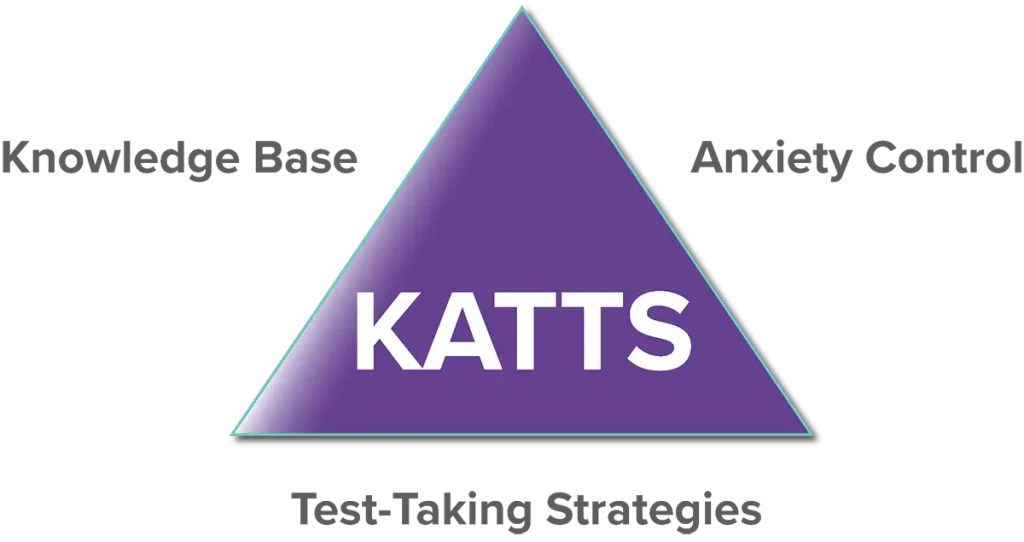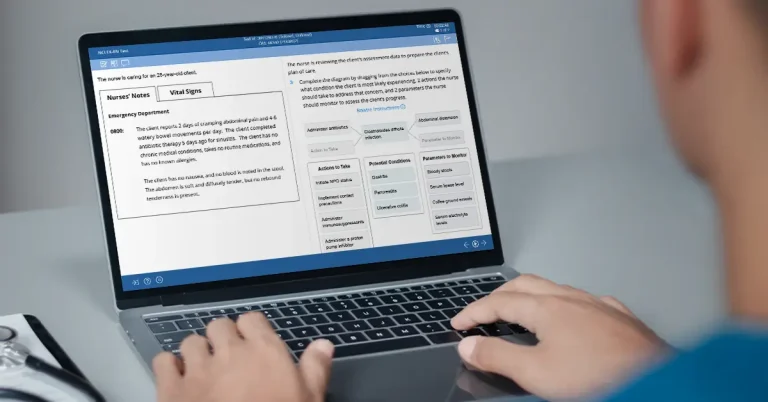By: Maria Flores-Harris, DNP, RN, CNE
It is no secret that nursing is facing a perfect storm, with the nursing profession experiencing burnout, anxiety, attrition, and other concerns. The root cause of many of these issues is the nurse shortage, and as nurse educators, we have a responsibility to address this problem. One of the ways we can do this is by implementing actionable strategies for remediation in our nursing programs.
Why Is There a Nursing Shortage
Let’s begin by examining the current state of nursing education. The number of graduates from nursing schools is not meeting the demand for nurses at the bedside, and one reason for this is that the current NCLEX-RN pass rate for first-time US-educated students is around 80%. The national attrition rate for nursing programs in the United States is 20%. These numbers indicate that we have a significant number of students who are not completing nursing programs or passing the NCLEX, leading to a shortage of nurses.
To address this issue, we must focus on two main goals for our nursing programs: low attrition rates and high NCLEX pass rates. These goals are essential to the success of our programs, our faculty, our students, and society at large. Achieving these goals requires appropriate remediation, which can help identify and rectify the variables that lead to attrition and low pass rates.
NCLEX Pass Rates Are More Than a Number
High NCLEX pass rates are not only important for a nursing program’s reputation, but they also have a direct impact on our students’ success in finding employment after graduation. Employers look for graduates from programs with high NCLEX pass rates, which can give our students a competitive edge in the job market. Furthermore, high NCLEX pass rates ensure our graduates have the knowledge and skills to provide safe and effective patient care.
On the other hand, high attrition rates can have a detrimental effect on a nursing program’s reputation and success. They can lead to decreased enrollment, decreased federal funding, and a loss of accreditation. High attrition rates also mean that many qualified students who could have been successful nurses may have been lost due to preventable factors.
By focusing on increasing NCLEX pass rates and decreasing attrition rates, we are not only ensuring program success but also creating a pipeline of competent and qualified nurses for the healthcare industry. We must provide appropriate and timely remediation to struggling students to increase their chances of success. By doing so, we can ensure that our students are prepared to provide safe and effective patient care and that our nursing programs successfully produce competent and qualified nurses for the future.

Actionable Strategies for Remediation in Nursing Education
As nurse educators, we know that not all students learn at the same pace or have the same level of understanding of complex nursing concepts. That’s where actionable strategies for remediation come in. By identifying areas where students are struggling and providing targeted remediation, we can help our students succeed in their nursing education. In this way, we not only ensure that our students are well-prepared to enter the nursing profession but also contribute to the overall success of our nursing programs.
Remediation should be targeted
We need to take a multi-pronged approach to remediation. Remediation should be provided for groups, self-guided and faculty-guided, and with individual students. Remediation activities should include practice with NCLEX-style questions, implementing test-taking strategies and test reviews, and strengthening your students’ test-taking mindset.
Remediation is not just about content
As nurse educators, we need to address both the head and the heart of remediation. Content knowledge is essential, but we must also address non-academic concerns such as time management, anxiety management, and other personal issues that affect learning and may increase anxiety.
The KATTS (Knowledge – Anxiety Control – Test-Taking Strategies) framework is an evidence-based approach to remediation utilized in many nursing programs to guide students to success on NCLEX.

Remediate early and often
We need to start remediation early. Identifying and correcting deficits from day one is essential for success. Students often enter our nursing programs with deficits in content knowledge, study habits, and test-taking strategies. Without early intervention, bad habits persist, are reinforced, and inhibit the development of higher learning.
Remediation is for everyone
Finally, we need to ensure that remediation is for everyone. All students can benefit from some amount of remediation, and there is no shame or harm in students remediating so that they might learn from their mistakes. If all students remediate, we avoid the negative stigma of singling out remedial students.
The evidence proves that appropriate and comprehensive remediation can lower attrition rates and increase the likelihood of passing NCLEX. As nurse educators, it is our responsibility to implement actionable strategies for remediation in our nursing programs to ensure the graduation of competent practitioners. Let’s work together to address the nurse shortage and create a better future for nursing.


West Alabama University NCLEX® Success Story

University of British Columbia NCLEX Success Story







